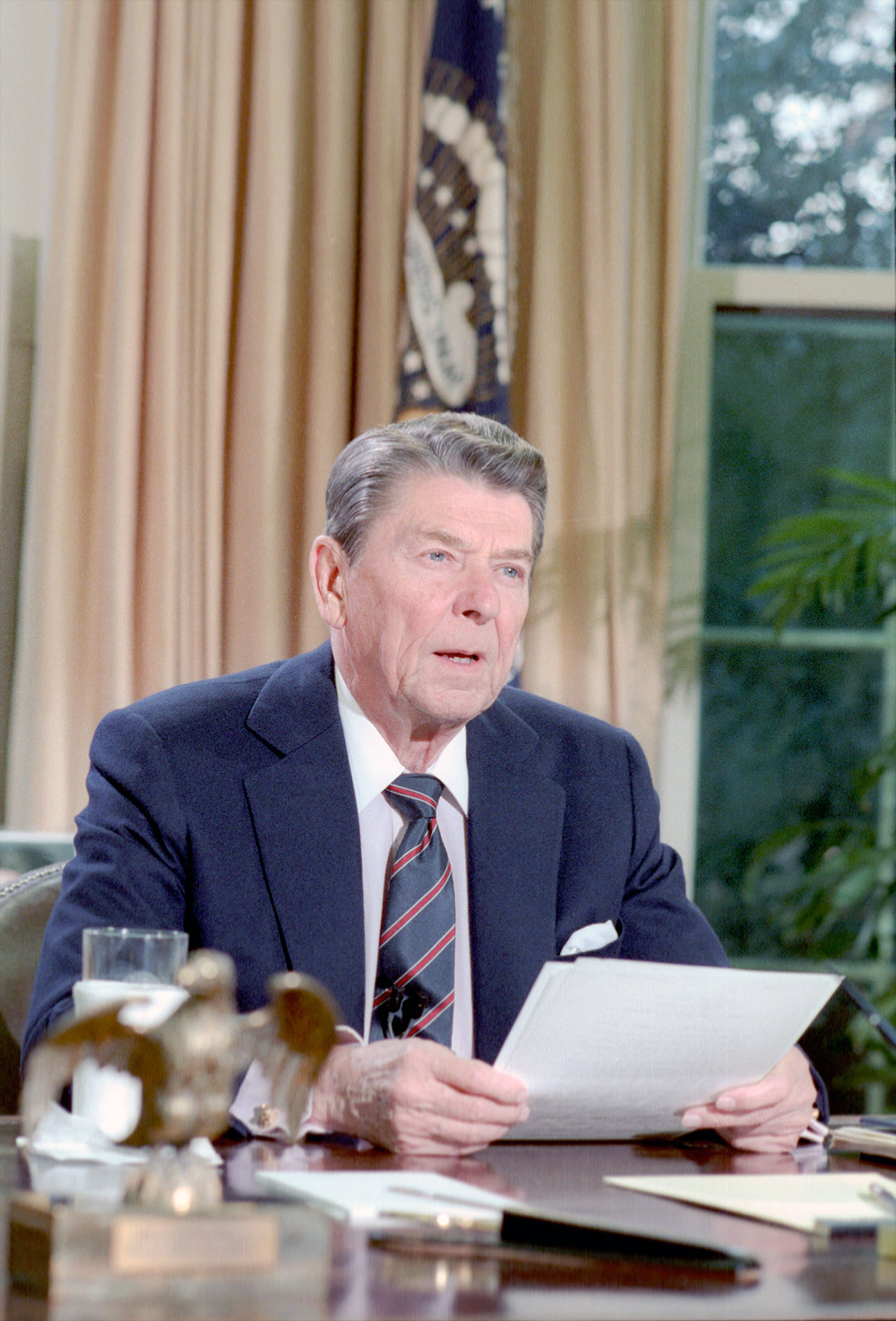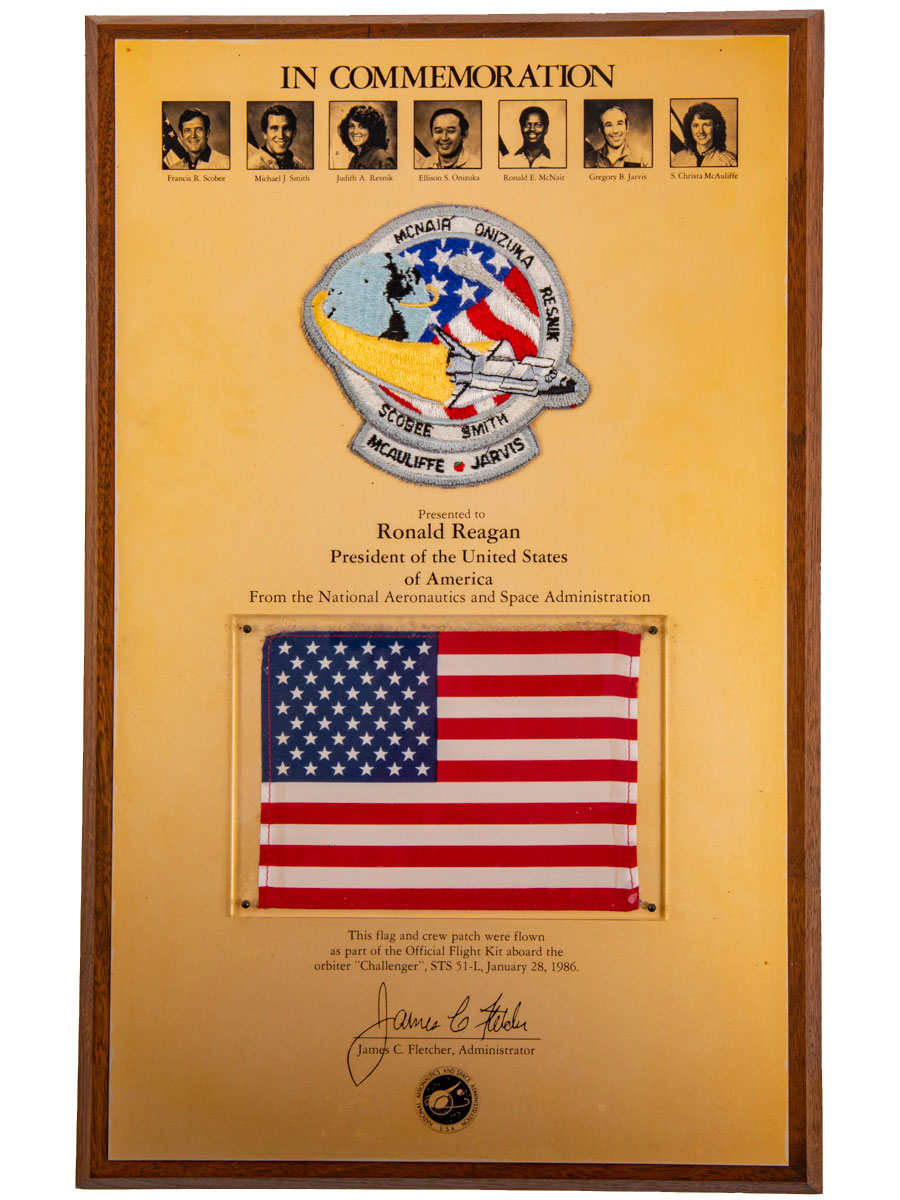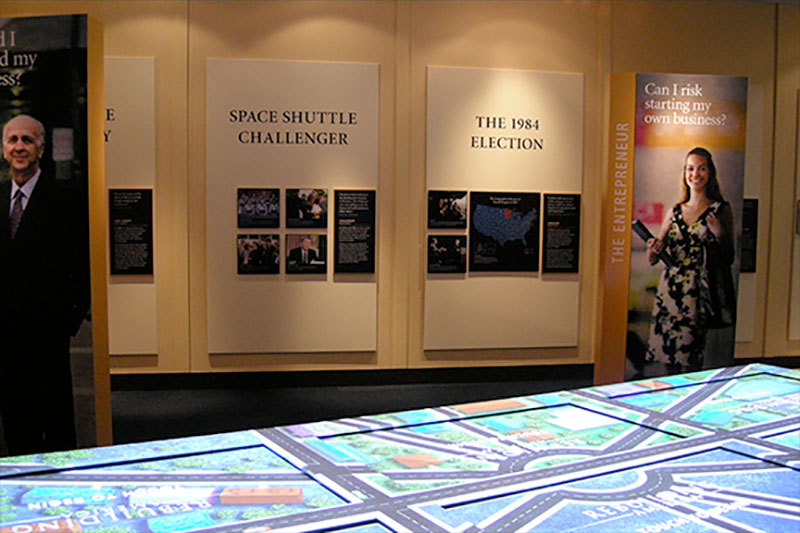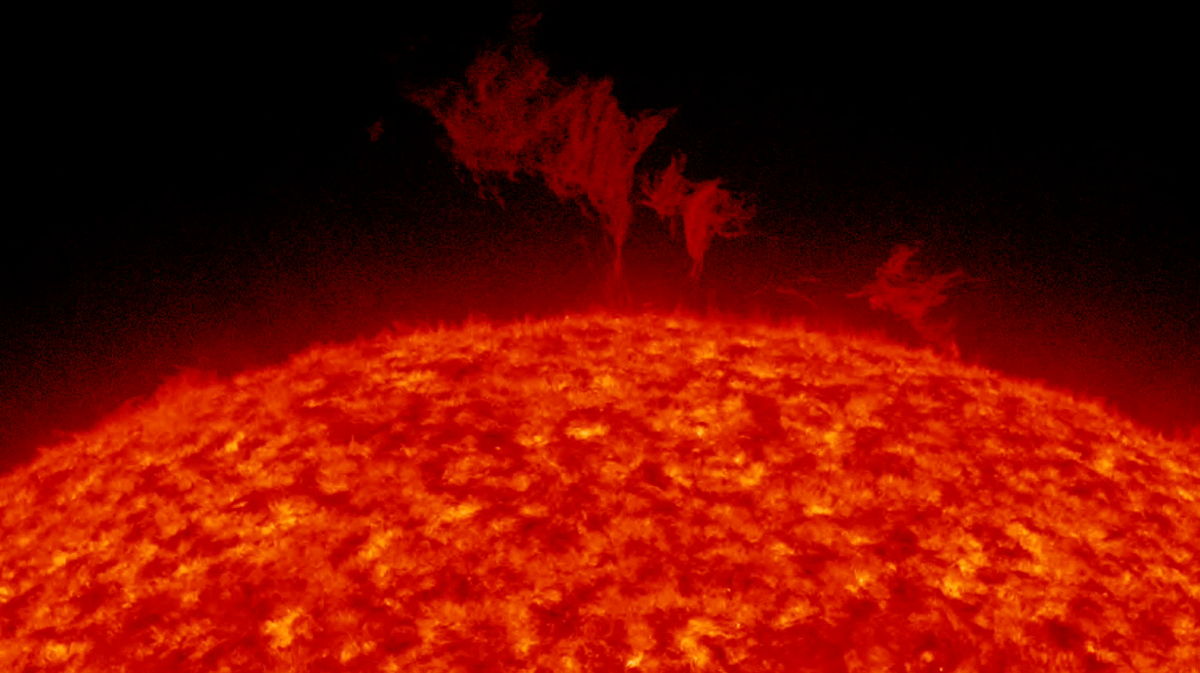Challenger artifacts intended for President Reagan recovered after 36 years

Artifacts that were recovered from the fallen space shuttle Challenger and prepared for presentation to the President of the United States have been recovered again, 36 years later, after they surfaced at auction among the collection of a NASA liaison to the White House.
Little is known about how or why the late James Foster Fanseen, who died in 2000, had come into possession of the small American flag and crew patch that were mounted to a plaque and inscribed to "Ronald Reagan, President of the United States." Once recognized for what they were, though, the artifacts were restored to the proper hands, now at the Reagan Presidential Library and Museum in Simi Valley, California, collectSPACE.com has learned.
More work needs to be done to authenticate and document the plaque's history before it can be formally accepted by the National Archives and Records Administration. The expectation, though, is that when the research is completed, the plaque will go on display at the library.
The staff at the library was unaware that such a plaque existed until it was brought to their attention by the auctioneers and collectSPACE. The National Archives and Records Administration, which operates the Reagan Presidential Library, declined to comment for this article.
Related: Remembering Challenger: NASA's 1st Shuttle Tragedy in Photos
'Slipped the surly bonds'
On Jan. 28, 1986, NASA's space shuttle Challenger, carrying a crew of seven, lifted off on the 25th mission of the program. Seventy-three seconds after leaving the launch pad at 11:38 a.m. EST (1638 GMT), a faulty O-ring seal in one of the shuttle's two solid rocket boosters failed, leading to the vehicle breaking apart.
STS-51L mission commander Francis "Dick" Scobee, pilot Michael Smith, mission specialists Ellison Onizuka, Judith Resnik and Ronald McNair and payload specialists Gregory Jarvis and "Teacher in Space" Christa McAuliffe were killed in the disaster, marking the first time in U.S. history that NASA astronauts had been lost in flight.
Get the Space.com Newsletter
Breaking space news, the latest updates on rocket launches, skywatching events and more!
Related: NASA video honors fallen astronauts of Apollo 1, Challenger and Columbia

"The crew of the space shuttle Challenger honored us by the manner in which they lived their lives. We will never forget them, nor the last time we saw them, this morning, as they prepared for their journey and waved goodbye and 'slipped the surly bonds of earth' to 'touch the face of God,'" said Reagan in an address to the nation that evening.
Eight months later, after the investigation into the disaster had concluded, NASA announced that some of the mementos recovered from among Challenger's debris would be presented to organizations and institutions who had supported the mission. In addition, the agency would "suitably prepare and present" an STS-51L crew patch and a flag to each U.S. state and territory, as well as to the National Air and Space Museum in Washington, DC.
"Since our space program is the nation's program, all its people should have a reminder of the Challenger and its crew," said then-NASA Administrator James Fletcher.
The Oct. 27, 1986 release omitted any mention of a plaque for the President of the United States, but an internal memo held by the Smithsonian makes mention of the president's plaque in relation to the presentation of the plaque for the National Air and Space Museum.
Fanseen at the time was working as a consultant to Fletcher and as a liaison to the White House and Capitol Hill, a position he held at NASA from 1980 to 1991.
Lot no. 1
In addition to being made out to Reagan, the 17.75 by 11.25-inch (45 by 28.5 cm) chestnut and gold anodized aluminum plaque read, "This flag and crew patch were flown as part of the Official Flight Kit aboard the orbiter 'Challenger', STS 51-L, January 28, 1986" and bore Fletcher's signature.
Per the Presidential Records Act of 1978, gifts presented to the President are not the president's to keep or give away.
"They are gifts to the office. They aren't gifts to the individual," said Randle Swan, supervisory curator at the Reagan Library. "If the individual who is President wants to keep them, then they have to pay for them at fair market value."
It is not clear, though, if the plaque ever made it to the White House or, for example, if it sat in Fanseen's office waiting for a ceremony that never occurred.
"Unfortunately, nobody from that generation is still alive," Serena Harragin, co-founder and owner of Gray's Auctioneers, told collectSPACE. "All that the relatives could say was that it was amongst all his stuff. It has been held in storage for almost 20 years since he passed."

Gray's listed the plaque as the first lot in its Holiday Auction that went online in November 2021. The plaque was paired with a NASA lithograph of the STS-51L crew, a memorial pin, a NASA art print portfolio and a copy of the Presidential commission on the space shuttle Challenger accident.
The entire lot was estimated to sell for $3,000 to $5,000.
Even before the catalog was published, questions about the plaque's provenance caused Harragin to seek out more information.
"We tried for several weeks to get an answer from the Reagan Library, but, of course, the library had been shut down due to COVID. It wasn't until just before Thanksgiving that I was finally able to get hold of the head of all the libraries, who put me in touch with the Reagan Library," she said.
Although the details were (and still are) far from known, Gray's consulted with Fanseen's family and they decided to withdraw the plaque and hand it over to the National Archives.
"They were actually very excited. They thought it was wonderful that something that had been lost to the public was possibly going to be available again," Harragin said.
Missing piece
Until now, the Reagan Presidential Library and Museum has had only photographs and paperwork to connect the administration with the Challenger tragedy.
If the plaque is cleared to go on display, it will help bridge that gap.

President Reagan's plaque may not be the only NASA Challenger presentation to have gone missing. According to a survey conducted by collectSPACE in 2016 and updated since, only 17 of the 50 plaques presented to the U.S. states could be located on public display or held in archives.
Follow collectSPACE.com on Facebook and on Twitter at @collectSPACE. Copyright 2022 collectSPACE.com. All rights reserved.
Join our Space Forums to keep talking space on the latest missions, night sky and more! And if you have a news tip, correction or comment, let us know at: community@space.com.

Robert Pearlman is a space historian, journalist and the founder and editor of collectSPACE.com, a daily news publication and community devoted to space history with a particular focus on how and where space exploration intersects with pop culture. Pearlman is also a contributing writer for Space.com and co-author of "Space Stations: The Art, Science, and Reality of Working in Space” published by Smithsonian Books in 2018.In 2009, he was inducted into the U.S. Space Camp Hall of Fame in Huntsville, Alabama. In 2021, he was honored by the American Astronautical Society with the Ordway Award for Sustained Excellence in Spaceflight History. In 2023, the National Space Club Florida Committee recognized Pearlman with the Kolcum News and Communications Award for excellence in telling the space story along the Space Coast and throughout the world.










